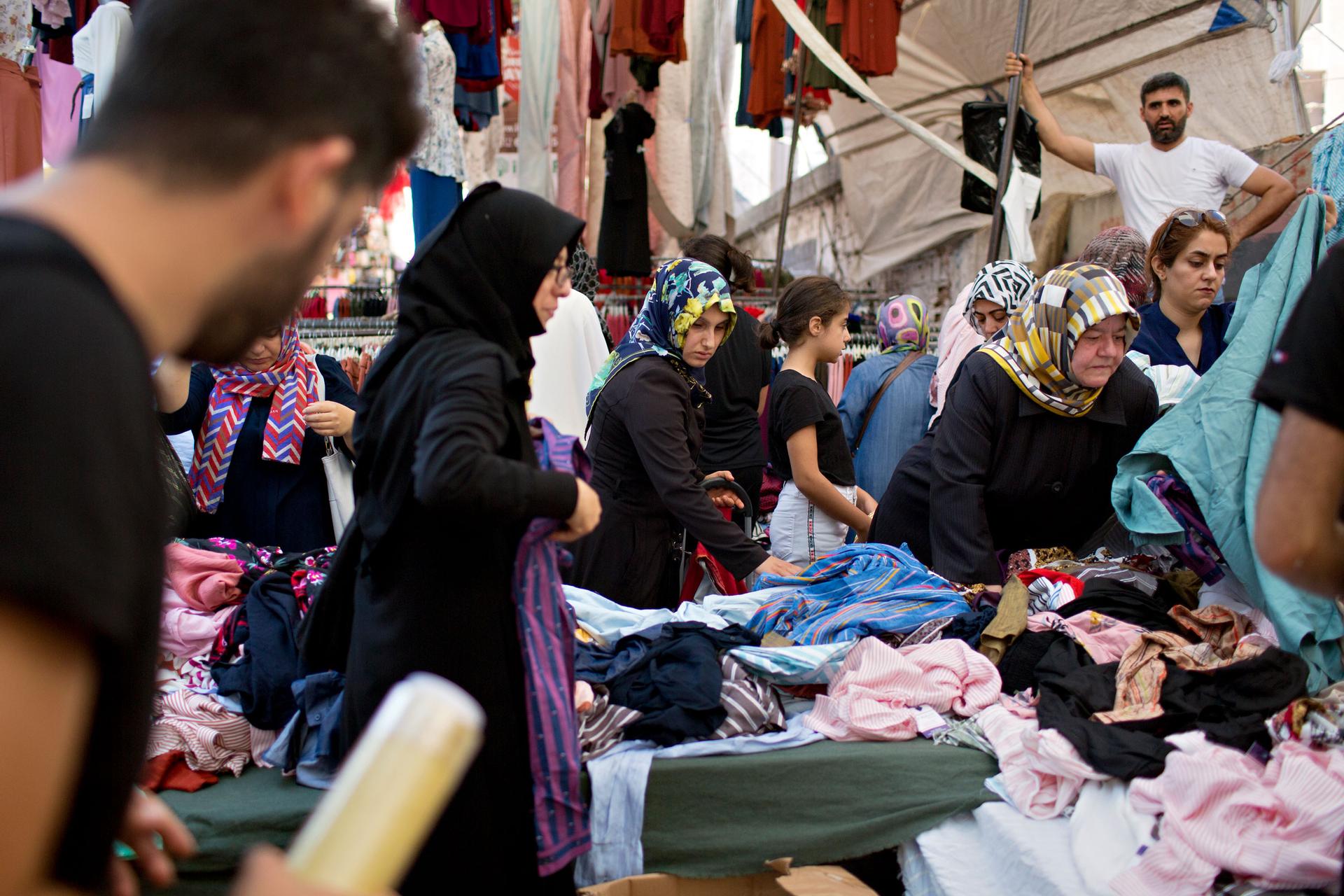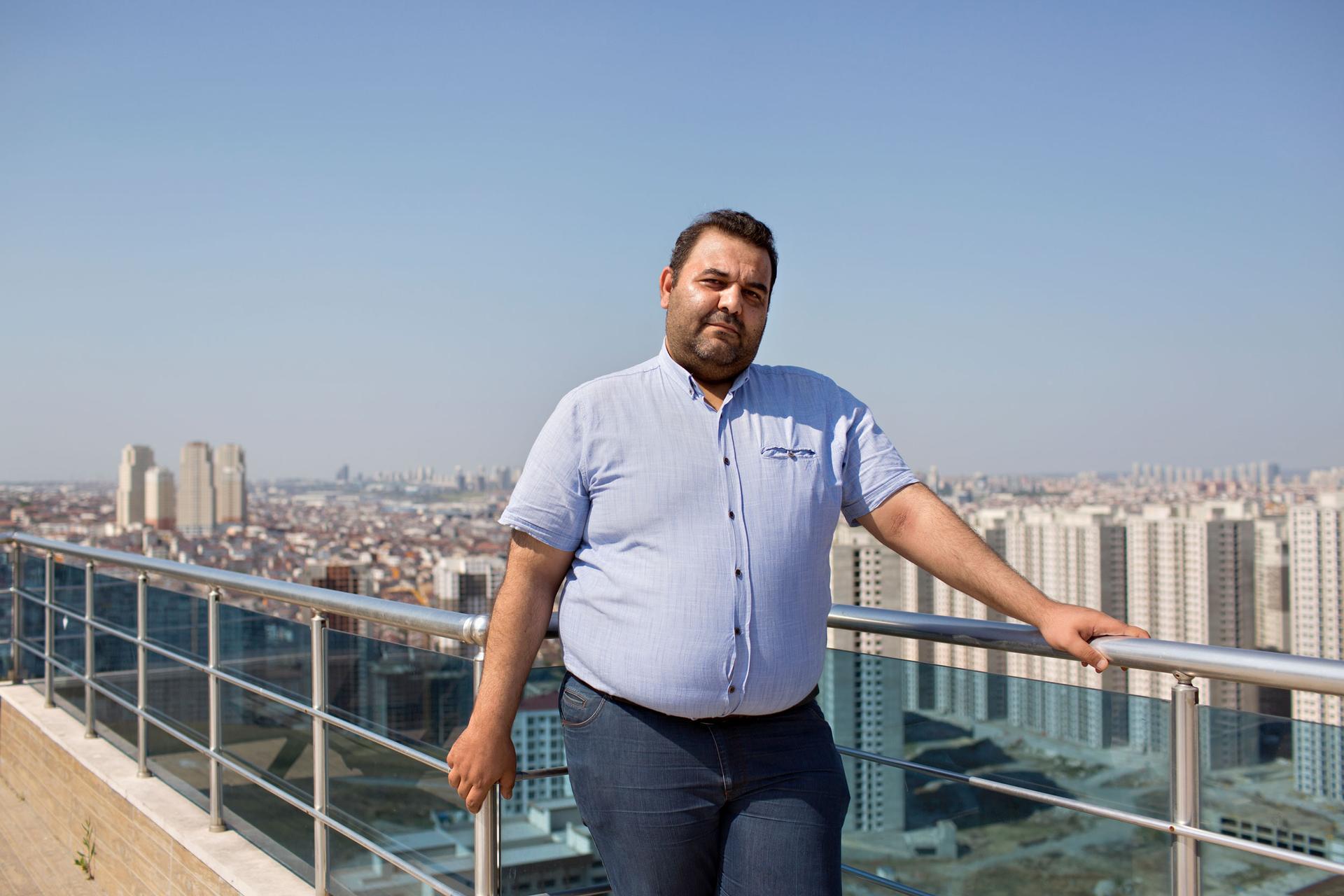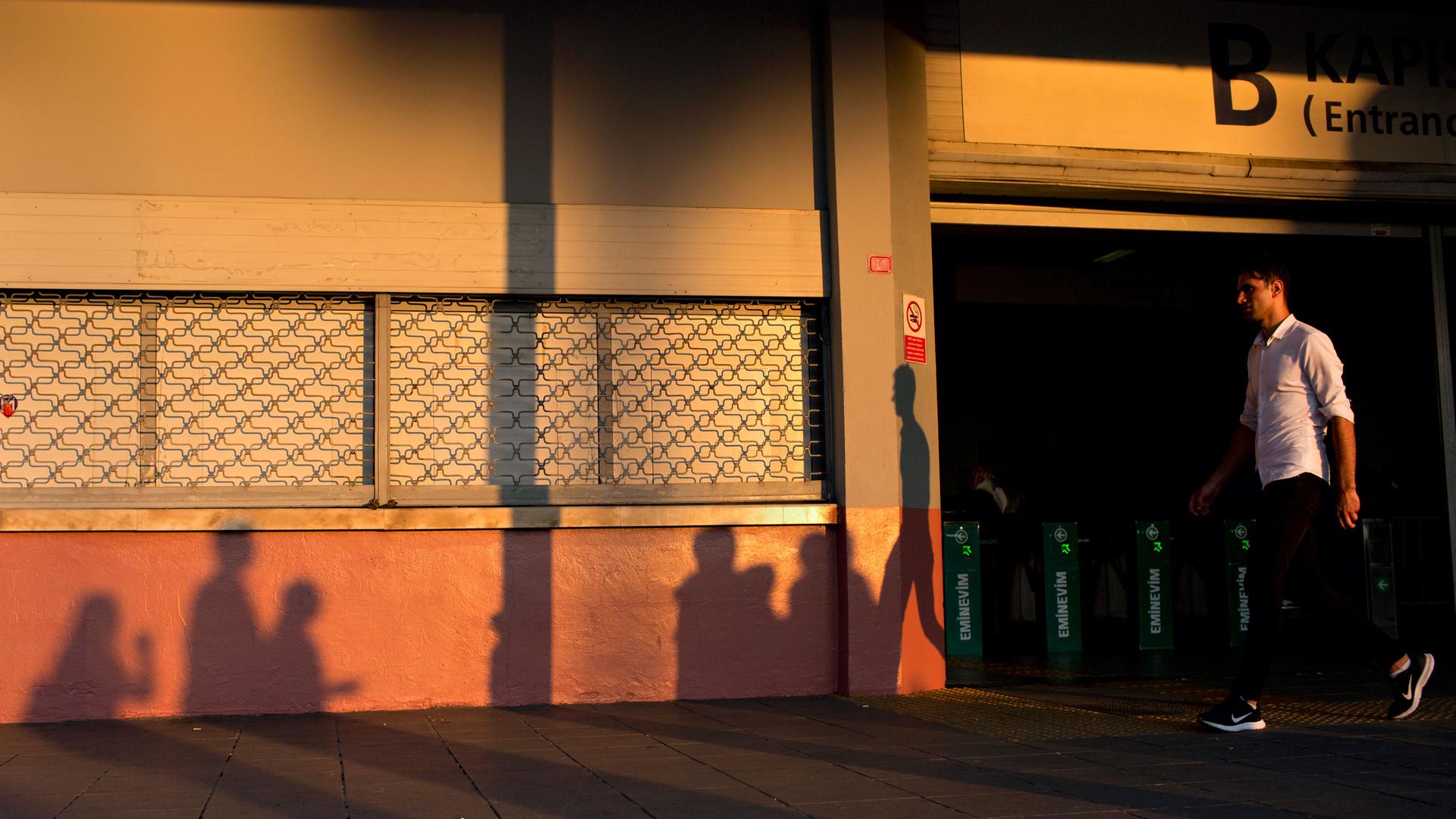Turkey denies deporting refugees to Syria. Activists say they’ve sent back thousands.
For more than two years, Faras Hajar, 23, supported his siblings and elderly father as a shoe factory worker in Istanbul. But last month, after police stopped him in Esenyurt, a popular district for Syrian refugees, his new life appeared to be over.
Hajar, from Syria, says he tried to explain to the officers that he had lost his residency card and reported it missing. Still, Turkish police detained him alongside several others. They were then deported on July 19 to Syria’s embattled Idlib province, Hajar claims. He detailed his experience in a recent WhatsApp video message to The World.
“They started beating us. Why are they treating us like this? We don’t understand.”
“They started beating us,” said Hajar, who, in the WhatsApp video is shown wearing a baseball cap and sitting near a low wall. The backdrop, he says, is northern Aleppo (an activist working on his case also confirmed the location). “Why are they treating us like this? We don’t understand.”
Hajar’s testimony is one of dozens that contradict claims by Turkish officials who say that the government has not forcibly deported Syrians in a widespread campaign to crack down on illegal migration in recent weeks. The stepped-up enforcement has included ID checks at workplaces, mass transit stops and roadside checkpoints and resulted in the arrest of about 12,000 people from several countries, according to the Turkish government.
Related: How women who’ve left Turkey are helping those left behind
“Those returning voluntarily head to Syria’s two peaceful zones, cleared from terror and war by Turkey,” said Ramazan Seçilmiş, head of the Combating Irregular Migration Department in Turkey’s Directorate-General overseeing immigration, to Turkish state media. “It is not possible to send Syrians to other areas.”
Syrian activists in Istanbul say they are in talks with Turkish government officials to stop the deportations and intervene in some of the most dire cases. After almost three weeks in Syria, Hajar was allowed to cross back into Turkey on Aug. 6, according to activists monitoring his situation. But the arrests have sent a wave of fear through Istanbul’s Syrian community, which is already on edge after mob attacks on Syrian businesses in Istanbul’s Küçükçekmece neighborhood.

Activists struggle to track deportations
“Do you have the list?” a volunteer asked an Arabic-speaking friend as he scrambled to pick up a ringing cellphone. An Italian intern grabbed her laptop as a Turkish nongovernmental worker leaned in to listen. They huddled around a coffee table, littered with pistachio shells and a pack of American Spirits.
“Assalamu alaikum” — “peace be upon you” — a low voice crackled through a landline.
Related: For Syrian refugee children in Turkey, a ‘home with dignity’ is hard to find
A handful of volunteers working out of one of their homes field calls from a detention center where people pass the phone from person to person. Their calls usually come in during the evening.
The volunteers answering the phone — a group of loosely connected friends — are helping to track the names and cases of people being deported to Syria by the Turkish government. The handful of group members asked to remain anonymous for fear of reprisal from the Turkish government.
Some callers claimed that police had beaten them, forced them to give fingerprints and sign forms saying they were voluntarily going back to Syria.
The callers are all young men — a demographic that fits with videos of the deportations posted to social media. Some callers said they had residency permits allowing them to stay in Turkey legally, but weren’t carrying them when they were arrested. Others had permits that were only valid for another Turkish province, according to one of the volunteers.
“All of them, they were worried about their families living here,” said one volunteer, a Syrian student. “What’s going to happen to them when I leave?”
Similar forced signings of repatriation documents were reported by New York-based Human Rights Watch, which the organization says is a violation of international rules that prohibit the return of a refugee to a country where they face persecution.
“By the time courts have heard about people being refouled, they’ve been refouled already. It doesn’t bring people back.”
But Emma Sinclair-Webb, the organization’s Turkey director, says it’s not easy to enforce. “By the time courts have heard about people being refouled, they’ve been refouled already,” she said. “It doesn’t bring people back.”
Citing reports from border guards at the Bab al-Hawa border crossing from Turkey into Syria’s embattled Idlib province, Syrian activists believe that Turkey has deported more than 6,000 Syrians since the beginning of July.
Idlib, the last bastion of land controlled by an increasingly extremist collection of militant opposition groups, has been under bombardment by Russian-backed forces loyal to the Assad regime for several months. At least 400 people, including 90 children, have died in Idlib since April, according to London-based Save the Children.
Arrests signal a policy shift for Ankara
The Turkish government acknowledges that Syria remains unsafe. But in a series of media appearances with pro-government outlets, officials have maintained that the Syrians left Turkey voluntarily.
“Turkey under smear campaign with false Syrian deportation reports after Istanbul decree,” proclaims a headline in the Daily Sabah, a pro-government newspaper. “Various users who participated in the smear campaign were actually supporters of the PKK [Kurdistan Workers Party] terrorist organization.”
The arrests in Istanbul come around the same time as a directive issued by Turkey’s Interior Ministry and released by Istanbul’s governorship on July 22. It says that authorities will soon begin to strictly enforce rules over residency permits that require most Syrian refugees to stay in the provinces where they are first registered by the government — a state known as “temporary protection status.”
Syrians living in Istanbul were given until Aug. 20 to move to the cities designated on their ID cards.
As reports of deportations mounted, the office released another statement, saying that unregistered Syrians would be sent to refugee camps on the border to be registered in provinces outside of Istanbul.

“The deportations are not new, but the scale of it is.”
“The deportations are not new, but the scale of it is,” said Omar Kadkoy, a policy analyst for TEPAV, an economic think tank based in Ankara.
Of the estimated 700,000 to 900,000 Syrians living in Istanbul, about 550,000 are registered and allowed to live in the city under temporary protection rules. While some are in the country on student visas or other permits, a significant number carry either expired residency cards, temporary protection permits valid in other provinces or no registration at all.
Since February of last year, registrations have been closed to Syrians hoping to stay in Istanbul — but the lack of jobs in other parts of the country have led many to remain in the city anyway.
“If you want to relocate to the province of registration, you need to find a place to stay, you need to look for a job,” Kadkoy said. “We’re closing down on the Bayram holiday … it’s going to be messy.”
The move comes after President Recep Tayyip Erdoğan’s AK Party lost control of key cities in a round of contentious local elections, including the embarrassing handover of Istanbul’s coveted mayor’s seat to an opposition candidate, Ekrem Imamoglu, after calling a do-over.
While Erdoğan once extolled a policy of welcoming Syrian refugees and berating the West for not stepping up to the plate, recent polls suggest that Turkish voters are souring on the idea of hosting an estimated 3.6 million refugees from their southern neighbor. More than 80% of responses to one Piar group poll said that “all Syrians should be sent back.”
Syrian activists in talks with the Turkish government
Armed with individual testimonies, Syrian activists say they’re taking these cases to the Turkish government. About a dozen people who had residency cards in Istanbul but were deported anyway have been allowed to return to Turkey, according to activists. Additionally, activists say, government officials promised to assist Syrians registered in other provinces to move their homes.
Mouath Youssef, an information technology engineer who is helping to track the arrests, says this is not a permanent solution.
“We’re calling on the UN to be more involved and active, to help Syrians resettle in other countries. And we’re calling on Turkey to give people their minimum rights as refugees.”
“We’re calling on the UN to be more involved and active, to help Syrians resettle in other countries,” Youssef said. “And we’re calling on Turkey to give people their minimum rights as refugees.”

Those minimum rights, he says, include the ability to leave the province of registration without applying for a travel permit.
But Basel Hailam of the Syrian Associations Platform, based in Istanbul, points to a drop-off in deportations as evidence that activists have made progress.
“In the past three days [he said last week], 35 people were deported. But compared to the severity of the campaign from the beginning, it’s nothing.”
“In the past three days [he said last week], 35 people were deported,” he said. “But compared to the severity of the campaign from the beginning, it’s nothing.”
In Hailam’s view, the most likely result of Turkey’s crackdown on residency permits is that Syrians will begin to leave Turkey and try their luck on the dangerous crossing to Europe. It’s clear, he says. Turkey’s policy of welcoming refugees has changed.
“The honeymoon is over,” he said.
